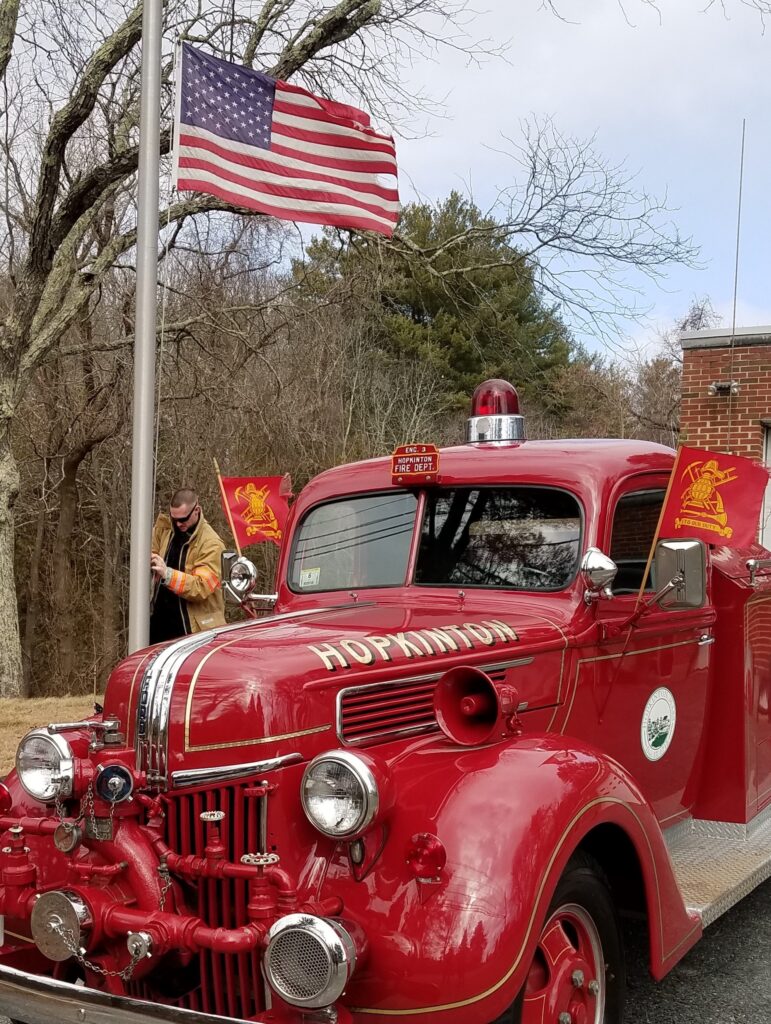What happens when police respond to a call involving individuals in a mental health or substance-related crisis?
It is an all-too-frequent and potentially tragic scenario that over many years has left a disproportionate number of jail inmates with untreated behavioral health disorders and drug or alcohol abuse problems.
Hopkinton police are now working to change the situation by partnering with Framingham- based Advocates – a provider of health and social services from central to eastern Massachusetts.
Fifteen years ago, Advocates piloted its Pre-Arrest Co-Responder Jail Diversion Program (JDP) at the Framingham Police Department.
In 2015 Advocates introduced JDP on a regional basis in Hopkinton, Ashland, Sherborn and Holliston.
“[JDP] helps us in responding to a plethora of situations, including domestic violence, teens and homelessness,” said Hopkinton Police Chief Edward Lee.
He said JDP allows trained social workers to aid police on certain calls, especially those involving mental health or substance-related issues.
“Having a trained social worker available is also beneficial in calls involving death notification and in supporting officers who have witnessed traumatic situations,” said Lee.
According to its website, “Advocates JDP pairs police officers with masters-level clinicians who … provide much needed de-escalation, crisis stabilization, assessment/evaluation services and on-the-job training.
“By providing treatment-based alternatives, clinicians are able to facilitate arrest diversions and reduce costly and unnecessary referrals to hospital emergency departments. Individuals who are not able to be diverted from arrest also receive support, resources, and referrals while in police custody.”
No one is more familiar with the benefits of JDP than local program liaison, Hopkinton Police Sgt. Aaron O’Neil.
“We now have the ability to follow up on individual cases by identifying and helping to provide what necessary services may be available,” said O’Neil.
“We also try to educate the individual’s family about what help may be available and hopefully get them involved,” O’Neil said.
Lee said the primary cost of the program is paid by a regional grant with Advocates and some money from the towns, all of which pays not only for the participation of ride-along clinicians, but also necessary additional training of police officers.
Lee said in the long run, JDP saves the towns money.
This is backed up by information from Advocates: “Since 2003, 4,017 individuals have been diverted from arrest or from hospital emergency departments. In the JDP communities, the total estimated cost savings is $11.2 million since inception.”
What can’t be quantified is the ongoing benefit to the individual recipients of JDP intervention.
Lee said he and those of his JDP-trained officers meet on a monthly basis with their counterparts from Ashland, Holliston and Sherborn to share information and assess the status and progress of the cases in which they have participated.
The local benefits of JDP are also discussed on the Advocates website in a section entitled “Culture Change.”
A study was conducted in Ashland, Sherborn, Holliston and Hopkinton (ASHH) to measure the effects of the program on police officer attitudes toward the mentally ill in five different categories: compassion, kindness, perceived dangerousness, community inclusion, and tolerance.
Advocates reported that one of the most significant changes was in the “compassion” category, which increased by 15 percent after one year of the JDP program.
According to the website, “the program has shown a beneficial and positive impact for police officers and by default is impacting the way they view and respond to calls for service involving individuals in a behavioral health crisis.”




















0 Comments